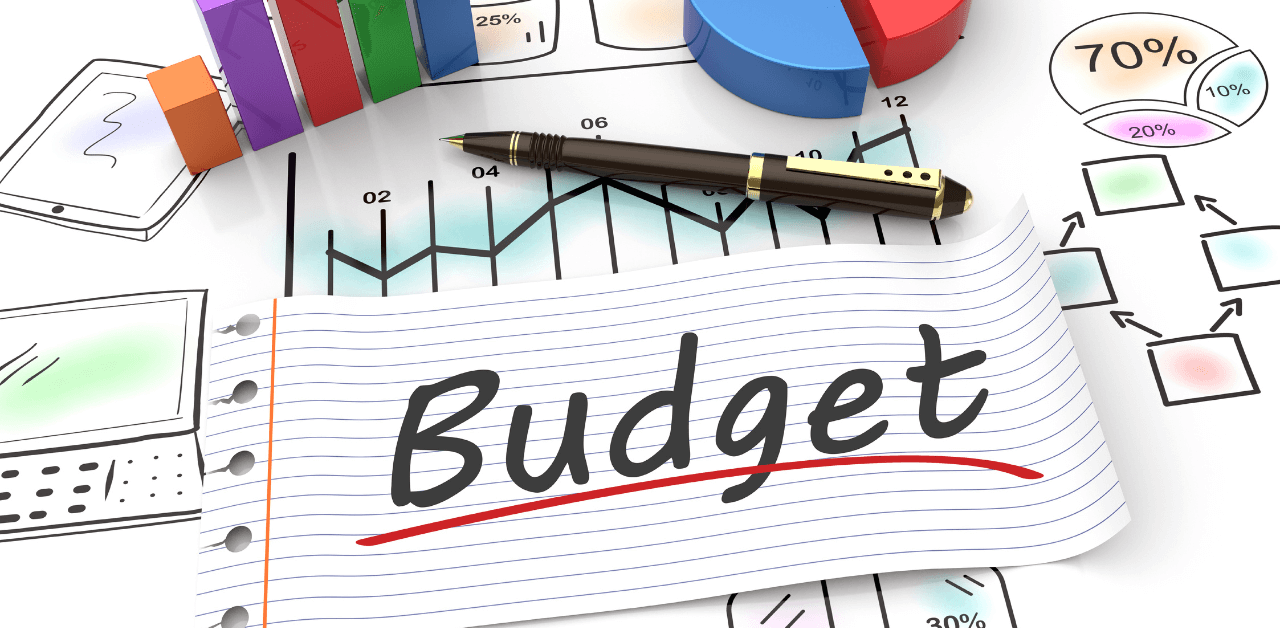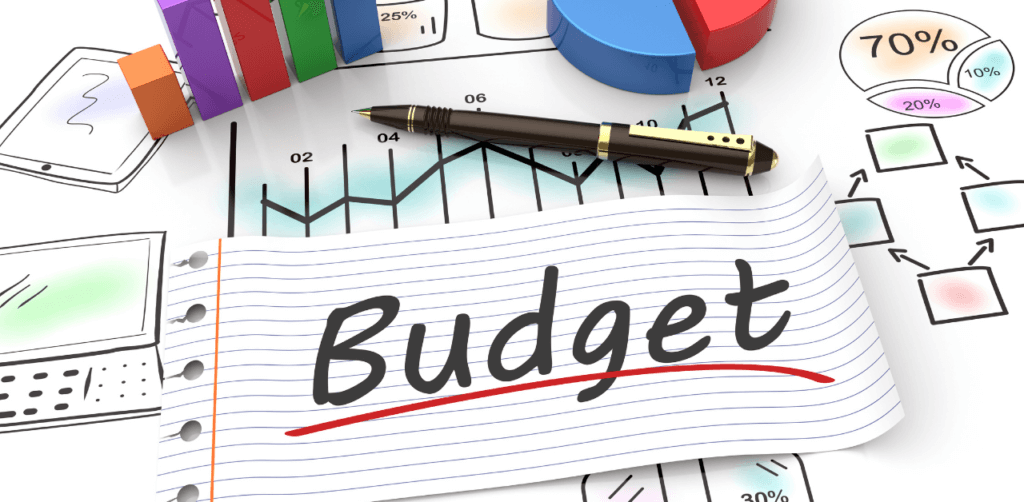Explore proven methods to allocate your income effectively, prioritize your spending, and build a secure financial future. Whether you’re aiming to save for significant milestones, pay off debt, or simply gain better control over your finances, these best budgeting tips are your compass to navigate the path towards financial success. Join us as we delve into the art of intentional living, where each dollar serves a purpose, and financial freedom becomes an achievable reality.
Whether you’re a seasoned budgeting enthusiast or a novice looking to start your financial journey, our comprehensive guide is tailored to meet your needs. We’ve sifted through the vast sea of financial advice to bring you the best budgeting tips, each a gem of practical wisdom aimed at empowering you to take charge of your finances.
The Foundation of Best Budgeting Tips:
Understanding the basics is crucial when diving into budgeting. Explore the essence of creating a detailed budget blueprint, setting clear financial goals, and establishing an emergency fund. These foundational elements lay the groundwork for successful budgeting.
Strategic Spending Strategies:
Discover the art of strategic spending, where every expense is a conscious choice. Dive into tips on optimizing grocery expenses, minimizing discretionary spending, and negotiating bills to get the most value from your money.
Increasing Income Opportunities:
Living on a budget doesn’t mean limiting your income potential. Explore various avenues to boost your earnings, including side hustles, freelance opportunities, and skill development. Maximizing your income enhances your financial flexibility.
Debt Management and Reduction:
Effectively managing and reducing debt is a critical aspect of budget living. Prioritize high-interest debt, explore debt consolidation options, and allocate a specific portion of your budget for debt repayment. Consistency is key to financial freedom.
Investing Within Budget Constraint:
Contrary to common misconceptions, investing is possible even on a budget. Uncover accessible and low-cost investment options, such as index funds or robo-advisors. Start small and watch your investments grow over time.
Lifestyle Harmony and Budgeting:
Achieving a harmonious balance between budget-conscious living and personal enjoyment is paramount. Discover budget-friendly alternatives for entertainment, travel, and leisure, emphasizing experiences over material possessions.
Coping with Financial Setbacks:
Every financial journey faces a setback. Learn how to navigate unexpected expenses, income fluctuations, or other challenges. Develop resilience and contingency plans to maintain stability during turbulent times.
Gratitude Practices: Shifting Focus from Lack to Abundance
Cultivate gratitude as part of your budgeting journey. Shift your focus from what is lacking to what is present and achievable. Gratitude practices foster a positive mindset, enhancing your overall well-being.
Personal Development and Skill Enhancement: Investing in Yourself
Invest in personal development within your budget constraints. Enhance skills that can contribute to your career growth or create additional income streams. This investment in yourself can lead to long-term financial benefits.
Community and Peer Support: Learning from Others
Engage with a community of like-minded individuals who share similar budgeting goals. Seek advice, share experiences, and learn from others on the same journey. Community support can provide motivation, insights, and a sense of accountability.
Mindful Consumption and Minimalism: A Lifestyle Shift
Embrace a mindset of mindful consumption and minimalism in your budgeting journey. Focus on needs over wants, prioritize quality over quantity, and cultivate gratitude for what you have. This shift not only saves money but also leads to a more intentional and fulfilling life.
Automate Your Savings: Set It and Forget It
Make saving a seamless part of your budgeting strategy by automating transfers to your savings account. This ensures that a portion of your income goes directly into savings without you having to think about it, fostering a consistent savings habit.
Use Cash Envelopes: Tangible Budgeting
Allocate specific amounts of cash to different spending categories and use physical envelopes to store them. This method adds a tangible aspect to your budgeting, providing a clear visual representation of your spending limits and encouraging mindful expenses.
Simplify Your Budgeting
Divide your income into three categories: 50% for necessities, 30% for discretionary spending, and 20% for savings or debt repayment. This simplified rule offers a clear guideline for allocating your income and ensures a balance between needs and wants.
Create a “No Spend” Challenge: Reset Your Spending Habits
Designate a specific period, like a week or a month, for a “No Spend” challenge. During this time, commit to only spending on essential items. This exercise helps identify unnecessary expenses and resets your spending habits.
Regularly Review Your Subscriptions: Trim Unnecessary Costs
Review your monthly subscriptions and eliminate any that no longer provide significant value. This could include streaming services, magazines, or apps. Cutting down on unnecessary subscriptions frees up funds for more meaningful purposes.
Implement the Snowball Method for Debt Repayment: Gain Momentum
If you have multiple debts, consider the snowball method. Focus on paying off the smallest debt first while maintaining minimum payments on others. As each debt is paid off, roll that payment into the next one. This method builds momentum and motivation.
Negotiate Bills Regularly: Cut Down on Fixed Expenses
Regularly negotiate bills such as cable, internet, or insurance. Providers often have promotions or discounts, and expressing loyalty or comparing competitor offers can result in reduced monthly expenses.
Meal Plan and Prep: Control Your Grocery Spending
Plan your meals for the week, create a shopping list, and stick to it. Meal planning reduces spontaneous grocery purchases and helps you optimize your grocery spending. Consider batch cooking to save time and money.
Track Your Expenses: Stay Informed and Accountable
Use budgeting apps or tools to track your expenses. This practice helps you understand where your money is going, identify spending patterns, and stay accountable to your budgeting goals.
Shop Smarter: Hunt for Discounts and Coupons
Before making a purchase, look for discounts, coupons, or cashback offers. Use apps or browser extensions that automatically find and apply discounts to your online purchases, helping you save money effortlessly.
Set Realistic Goals: Break Down Larger Objectives
When setting financial goals, break them down into smaller, achievable milestones. This makes the process more manageable and allows for a sense of accomplishment along the way, keeping you motivated to stick to your budget.
Establish a “Miscellaneous” Category: Flexibility in Spending
Include a small “miscellaneous” category in your budget to account for unexpected or irregular expenses. This provides flexibility and prevents the need to constantly adjust your budget for every unforeseen cost.
Utilize Cashback Rewards: Earn While You Spend
If you have a credit card with cashback rewards, use it strategically for purchases within your budget. This way, you can earn cashback on necessary expenses and potentially offset some costs.
Review and Celebrate Progress: Stay Motivated
Regularly review your budget to assess progress. Celebrate milestones, whether it’s paying off a debt, reaching a savings goal, or sticking to your budget for a set period. Acknowledging achievements keeps you motivated.
Build an Emergency Fund Gradually: Consistency Matters
If you don’t have an emergency fund, start small and gradually build it. Allocate a portion of your budget to contribute consistently. Over time, your emergency fund will grow, providing a financial safety net for unexpected expenses.
Consider Second-Hand Purchases: Quality at a Lower Cost
Explore second-hand options for certain purchases, such as clothing, furniture, or electronics. Quality items can often be found at a fraction of the cost, allowing you to maintain your lifestyle within budget constraints.
Review Insurance Policies: Optimize Coverage and Costs
Regularly review your insurance policies to ensure they align with your needs. Shop around for better rates or bundle
In conclusion, mastering your finances through budgeting is a transformative journey. By incorporating these best budgeting tips into your financial routine, you’re not just managing money; you’re creating a roadmap to a more prosperous and fulfilling life. Financial freedom awaits those who navigate their budget with intention, discipline, and a commitment to long-term success.
Thanks for reading from Adhunu
Check out our other blogs
Debt-Free Dreams: How Balance Transfer Credit Cards Can Transform Your Finances
Best White Label Digital Marketing Service 2 Make Money
How to Earn Money Online with Graphic Designing?
FAQs
A1: Budgeting is beneficial for everyone, regardless of income level. It provides a structured approach to managing finances, optimizing spending, and working towards financial goals.
A2: The key is finding a balance between financial discipline and personal enjoyment. Allocate a portion of your budget for discretionary spending and focus on what truly brings you joy.
A3: Absolutely. Start with low-cost investment options like index funds or explore micro-investing platforms. Consistent contributions, no matter how small, can lead to significant returns over time.
A4: Aim for three to six months’ worth of living expenses in your emergency fund. Adjust based on your individual circumstances and risk tolerance.
A5: Regularly revisit your budget at least monthly. Adjustments may be needed with changes in income, expenses, or financial goals. Flexibility is key to effective budgeting.





